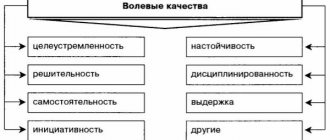Personal freedom is a rather multifaceted concept. It is difficult to say clearly what it is. Only one thing is clear: this is a complete lack of dependence on others, circumstances, habits. This is an opportunity to engage in activities that bring the greatest satisfaction. And also the fulfillment of any desires without regard to public opinion and foundations.
Freedom or responsibility
The definition of human freedom has changed over the centuries. In the modern sense, they first started talking about it during the Renaissance. It was then that people began to be considered the highest value, and their freedom as an inalienable right.
During the reign of the Protestant Reformation, the word “freedom” changed its meaning slightly. It implied the opportunity to find your own way to God and interpret the Bible in your own way.
Since the 19th century, individual freedom has become synonymous with self-expression. It meant economic stability, the ability to independently choose religion, behavior, and social circle.
Nothing has changed these days. Personal freedom occupies an important place in the structure of society. The individual is free to set priorities, choose goals and methods for achieving them. But there is one condition. Your freedom must coexist harmoniously with the freedoms of other people. This is called responsibility. A more free person is also a more responsible person. The opposite situation is called arbitrariness.
Implementation and protection of constitutional rights and freedoms of citizens
Constitutional rights and freedoms of the individual, their content and constitutional consolidation, guarantees of implementation and protection are the main indicator of the level of democracy of any society. In modern Russia there are many problems associated with violations of constitutional rights and personal freedoms. One of the reasons for this phenomenon is the low legal culture of Russian citizens, who do not know their constitutional rights, freedoms and responsibilities, who are unable and sometimes do not want to protect them. One of the conditions for solving this problem is the study of constitutional rights and personal freedoms by all citizens of the Russian Federation. This brochure reveals the concepts of fundamental constitutional rights and freedoms of citizens, as well as the mechanisms for their protection and implementation. The brochure is intended for a wide range of readers.
What are the constitutional rights and freedoms of man and citizen, what is their value?
The adoption of the Constitution of the Russian Federation of 1993 marked the beginning of the formation of a new stage in the development of Russian statehood based on the principles of a democratic and legal state, the highest value of which is the person, his rights and freedoms, and the recognition, observance and protection of the rights and freedoms of man and citizen is the responsibility of the state.
The Constitution of the Russian Federation enshrines a wide range of rights and freedoms of man and citizen. Constitutional rights and freedoms mean the opportunities enshrined in the Constitution and guaranteed by the state that allow each citizen to independently and in his own interests choose the type and extent of his behavior, as well as to use the social benefits provided to him.
The Constitution enshrines the most significant and important rights and freedoms for an individual, society and the state, and therefore they are called fundamental. They are the most important condition for the dignified and free existence of a person, guarantee the possibility of full participation of a person and citizen in political life, and are also a prerequisite for satisfying his basic material and spiritual needs. This is where their value is manifested, both for the individual and for the whole society.
Each individual has the full scope of constitutional rights and freedoms, the waiver of which is unacceptable. The state guarantees equality of rights and freedoms of humans and citizens, regardless of gender, race, nationality, language, origin, property and official status, place of residence, attitude to religion, beliefs, membership in public associations, as well as other circumstances.
It is important that the rights and freedoms of man and citizen in the Russian Federation are directly applicable. They determine the meaning, content and application of laws, the activities of the legislative and executive powers, local self-government and are ensured by justice (Article 18 of the Russian Constitution). This means that constitutional rights and freedoms are valid and applied even if they are not enshrined in current legislation. At the same time, courts and other authorities, when making their decisions, are obliged to be guided primarily by the constitutional rights and freedoms of man and citizen. Deviation from this rule calls into question the legality of their decisions and actions.
Why are there constitutional human rights and freedoms and civil rights and freedoms? What is their difference?
The Constitution of the Russian Federation distinguishes between the concepts of “human rights” and “civil rights”.
Human rights are predetermined by his social nature and are acquired by him by virtue of the fact of his birth. These rights are inalienable.
The rights of a citizen are conditioned by the fact that they are enshrined in the Constitution and are granted only to citizens of Russia.
The Russian Constitution uses the term “everyone” when establishing human rights. For example, Article 20 states that everyone has the right to life. When describing the rights of a citizen, the Russian Constitution uses the term “citizens”. In particular, Article 32 of the Constitution establishes that citizens of the Russian Federation have the right to participate in the management of state affairs, both directly and through their representatives.
The terms “law” and “freedom” used in the Russian Constitution are largely equivalent. At the same time, freedom presupposes greater autonomy of the individual in its implementation. For example, the Constitution guarantees freedom of thought and speech (Article 29). A person can realize this freedom in a wide variety of forms and in different ways.
What types of rights and freedoms are enshrined in the Constitution of the Russian Federation?
Taking into account the scope of implementation, constitutional rights and freedoms are divided into the following groups:
Basic theory
Famous public and cultural figures have described individual freedom in different ways:
- The ability to act in accordance with your interests and goals. Belinsky.
- The absence of political and economic oppression, restrictions in political and social life and the activities of a class or society as a whole. Dobrolyubov.
- Absence of slavery and serfdom. Chernyshevsky.
- Personal independence, independence. No dependency or constraint. The opportunity to do as you want. Dostoevsky.
- Ease, no difficulties. L. Tolstoy.
Personal freedom is often associated with voluntarism and fatalism. The first word really has to do with a free person. This is the desire to achieve goals without paying attention to objective circumstances and consequences. Fatalism is the exact opposite concept of voluntarism. According to fatalists, the personal freedom of each individual is nothing more than a utopia. Human life is predetermined by external factors. They cannot be changed. How are things really going?
Is there such a thing as unconditional freedom?
In an ideal world, yes. No one is able to limit the flight of thought. However, this concept is not applicable to real life. Absolute or unconditional personal freedom is, of course, tempting. But the idea itself has a number of shortcomings. For example, the inability to become free from one's body, conscience, discipline or responsibility. Such conditions can cause harm to both the person himself and those around him. In any case, freedom is endowed with specificity and certainty. Therefore, it is not unconditional, but relative. But this does not mean that there are always some restrictions. Often they are nothing more than empowerment. It turns out that there is no need to strive for absolute personal freedom. It's an illusion.
Understanding freedom in the modern world
Just a few centuries ago, freedom was an unattainable dream for most people. In Russia there was serfdom, in most European countries there was slavery. The slave had no rights, only duties - fulfilling the will of those to whom he belonged. It is logical that slaves did not have to think about self-development and self-realization at that time.
Today, after the abolition of serfdom and slavery, a person has the right to determine his own destiny and be free, but only within the framework of what is permitted by society. There is a widespread belief among sociologists that absolute freedom does not exist. There will always be barriers for a person, be it prohibitions established by society, for violation of which sanctions will be applied, or internal restrictions arising from a person’s moral principles. However, all these barriers in no way prevent a person from realizing himself.
How to become a free person
First, realize that true freedom comes from within. It depends on attitudes embedded deep in the consciousness and subconscious. A free person has a number of distinctive features:
- Controls his instincts and reflexes. Thanks to this, he behaves correctly in society.
- He doesn’t set limits for himself, doesn’t dictate a strict regime. Free individuals subtly sense the signals of the body. They know when they need rest, when it is the best time to work or eat.
- A free person has no complexes. This is especially true for self-doubt and low self-esteem. These negative qualities take away vital energy and eat from the inside. That is why freedom from them takes so long to develop.
- Not at the mercy of emotions. A person dependent on feelings and sensations often commits rash acts. Afterwards he regrets them, but cannot change anything. As a result, another complex develops. A free person independent of emotions easily makes decisions, can evaluate his actions from the outside and consciously correct mistakes.
Another sign of a free person is childlike spontaneity along with adult thinking.
How to understand your own freedom
Ask yourself 4 questions:
- Am I an independent person? Your opinions and actions should not be influenced by external factors. Learn, develop, boldly move forward. There is no way to stop there.
- Do I have a favorite activity or hobby? A person who does not like work can hardly be called free and happy. Therefore, think about whether your hobby can be turned into a permanent source of income.
- Do I spend a lot of time reading? Start with books dedicated to self-development and self-knowledge. They may not add freedom. But you will know exactly where to move next.
- Can I control my emotions? This is probably the most difficult skill.
A free person has all the skills listed above. He lives as he sees fit. Focuses only on his own values and priorities, leaving behind the opinions of others. Do you act the same way? So you can be congratulated. You are a free person.
The role of will in self-improvement
Self-improvement is the purposeful development of valuable qualities and abilities, as well as personal growth consistent with a person’s goals. Will plays a decisive role for successful self-development. For example, a person who strives for self-improvement with all his soul, but does not take any steps to realize himself, only dreaming of the heights that he can achieve, will never fully reveal his potential. It's a matter of will. If a person is diligent, sometimes through force, and does not give in to laziness, it means that he is ready to develop.
In addition, a harmoniously developing person must have his own opinion and not be afraid to express it, even if it is opposite to the public one. To do this, you also need to have developed willpower.
From childhood, a child gets used to the fact that the opinion of his parents is undeniable; he is taught not to contradict and agree with his elders in everything. The child has to adapt first to his parents, then to his teachers and peers, and thus his willpower is muffled, his own opinion merges with that of others, and the child can no longer make decisions on his own.
Therefore, if society’s point of view goes against your beliefs, listen to yourself first. There is no need to bend under other people's pressure - you need to overcome it, and only in this case will you be able to achieve something more.
Another common enemy of those who have embarked on the path of self-improvement is internal doubts and uncertainty. “What will others think about my actions?”, “Will I really succeed?”, “Am I doing the right thing by doing this and not otherwise?” – the appearance of all these questions in my head is logical and understandable. However, they should be driven away, since the longer you delay making a decision, the more time you will waste. It’s better to try, even if unsuccessfully, than not to try at all - this way you will at least gain experience.
Practical recommendations
Following simple but effective tips will help you gain inner freedom and self-confidence.
Understand what's stopping you from being free
This must be done at the very beginning of the path to internal liberation. There are 7 factors that make a person dependent:
- fear, self-doubt, complexes;
- public opinion, stereotypes;
- dependence on money;
- inability to make choices independently.
Once you determine the reason for the lack of freedom, act decisively. Eliminate the listed factors one by one.
Conquer your internal barriers
These include all the same fears and complexes. This is usually a consequence of past failures. It also happens that parents, having failed in some business, unknowingly program their children for it. This is the first and most important barrier.
Responsibility for your choice
Whatever decision you make, it will definitely have consequences, the responsibility for which will fall on your shoulders. You need to understand that every action you perform, every word, action and even look has its own outcome. It is logical that the resulting outcome may or may not satisfy a person, that is, be positive or negative for him.
The ability to take responsibility for every decision is another important point necessary for successful self-improvement. Therefore, before taking any action, you need to immediately think about what consequences it may lead to. If the result does not depend on you and your risks are minimal, then try and take risks, get out of your comfort zone. However, if the situation is completely under your control, then make every effort to achieve the desired result. For example, if you make a promise, then keep it.
Only a person who is fully aware of the consequences of his actions and takes responsibility for his decisions can be considered a person on the path to self-realization.











